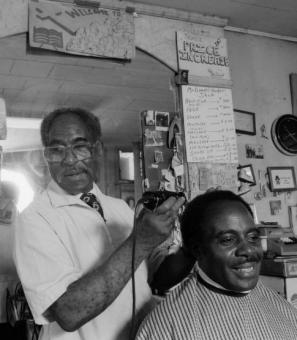"Oh-for-Maryland:" When Willie Mays Said Hey to Hub City
Few people in history have skipped their senior prom for the opportunity to play baseball in Hagerstown, Maryland. Few people in history have also hit 660 home runs, played in 24 All-Star games, and won 13 Gold Glove Awards. As far as we know, there’s only one who has done both.
It was Friday, June 23, 1950, when an unknown high schooler, Willie Mays, left his home in Alabama and, alone, boarded a train bound for Hagerstown, Maryland. Signed days earlier by the then-New York Giants, Mays was set to make his debut for their minor-league team, the Trenton Giants.[1] The “T-Giants” were playing an away series that weekend against the Hagerstown Braves, an affiliate of the then-Boston Braves. Both teams were part of the Class B Interstate League, a league that, in its 54 years of existence, never had a black player step up to the plate.[2]
In less than three months Willie Mays would end his inaugural season batting a stellar .353 and hitting 55 RBI’s in just 81 games.[3] But on June 23, he was just a prospect with a lot to prove, a daunting fact that hung over him for the whole train ride. As he recalled later,
“I kept looking out the window, or fumbling with the bag of sandwiches that Aunt Sarah had made for me, but I was too nervous to eat.”[2]
After a trip that felt like an eternity,[2] team announcer Bus Saidt picked Mays up at the train station and took him to Municipal Stadium to watch the T-Giants take on the Braves.[1] Though he didn’t play that day, his mere presence at the stadium made news. The following day, Hagerstown Morning Herald sports columnist Frank Colley wrote, “history was made last night as far as the color line is concerned when the Trenton Giants placed a colored player in uniform and he sat out the last two innings of the ball game on the bench.”[4]
Mays wasn’t in the lineup on that first night because he wasn’t scheduled to arrive in Hagerstown until the next morning. However, he was so excited to play for Trenton that he decided to come up a day early and even missed his senior high school prom in the process. Don’t worry though, he paid one of his friends to take his date.[5] So, while his classmates were home Jitterbugging in Alabama, Mays was 700 miles away, the lone black man on a diamond in Hagerstown.
As Mays recalled, “it didn’t take long to realize that Hagerstown was the only city in our league below the Mason-Dixon line.”[6] Before the Civil War, it served as a hub for slave traders. The war was long over, but Hagerstown still honored remnants of its antebellum past. A Hagerstonian would only have to go three blocks from Municipal Stadium to visit Rose Hill Cemetery, the burial site of two thousand Confederate soldiers.[7]
Since the city was still segregated, Mays had to stay in a different hotel from the rest of the Trenton team. A few of his teammates felt that this separation was wrong, so at midnight they decided to leave their hotel and check up on Willie. Since they were white, they couldn’t go into the hotel through the front entrance, so they came in through Mays’ window.[8] After successfully sneaking in they stayed with Willie until 6 a.m. the next day, when they left the same way they came. Willie remembered that night fondly, writing, “it made me feel good, and I didn’t have any trouble falling asleep.”[9]
This moment of unity, though, was fleeting.
While the T-Giants may have been ready to integrate their team, the city of Hagerstown felt differently. As he stepped out on the field that Saturday in June, Mays remembered “suffering the worst treatment” of his career.[10] Some voices wouldn’t relent, screaming “Crapshooter!” and “Watermelon man!” More pointedly, Willie distinctly remembered someone asking, “Who’s that n----- walking on the field?"[6]
Willie would have liked the crowd to eat their words and watch him send balls flying out of the park, but, like all players do from time to time, he had an off day. He went 0-3 in his first game, and remained hitless in the following game.[11] He took this poor performance especially hard because he felt it “reinforced the bigots’ view that he was unfit for the league.”[8] As he recalled his inauspicious debut later,
“In the game I just didn’t feel right. I started my organized baseball career oh-for-Maryland."[8]
But soon, “everything settled down—me included—after that first weekend in Hagerstown.”[3] His performance quickly improved, and his teammates at the time recalled that it was only after a few games that they knew he was special.[1]
Within a month, Hagerstonians warmed up to Willie as well. On July 19, Hagerstown Daily Mail sports columnist Dick Kelly wrote that Willie Mays was now turning in “a very credible performance” and “making the grade in fine style with the Trenton Giants.”[12]
As Mays’ Hall of Fame career blossomed, the city of Hagerstown came to celebrate its historic connection to the slugger. After his playing days ended, he was repeatedly asked to visit, and at one point was even asked to be the Grand Marshal of a citywide parade. Mays, however, had trouble erasing the memory of the hate he had experienced in Maryland. “I declined,” he said, “because I had a little sadness in my throat.”[13]
Ultimately, though, he did elect to return. He reasoned, “you just don’t hold that against a town because the town isn’t the person who hurt you.”[13] In 2004 the Hagerstown Suns—the current Hagerstown minor league team, and Washington Nationals affiliate—retired his number 24. Addressing the crowd during the ceremony he said, “in 1950, when I was here, it was such a sad moment. But everything works out. I had the same situation in San Francisco, Chicago, St. Louis. ... I have no regrets of coming back."[13]
It was a ceremony that few—perhaps least of all Mays himself—could’ve imagined in June of 1950. “I didn’t really think I would get the ovation I received today,” Mays said. “It’s wonderful.”[13]
Footnotes
- a, b, c Tom DeAngelo, "REMEMBERING WILLIE: Mays spent early part of baseball career in Trenton," The Trentonian (Trenton, NJ), June 24, 2011, accessed June 21, 2017.
- a, b, c Willie Mays and Lou Sahadi, Say Hey: The Autobiography of Willie Mays (New York, NY: Simon and Schuster, 1988), 46.
- a, b Mays and Sahadi, Say Hey, 51.
- ^ Frank Colley, "The Colley-See-Um of Sports," The Morning Herald (Hagerstown, MD), June 24, 1950, 12, NewspaperArchive.
- ^ Mays and Sahadi, Say Hey, 47.
- a, b Mays and Sahadi, Say Hey, 48.
- ^ James S. Hirsch, Willie Mays: The Life the Legend (New York, NY: Scribner, 2010), 66.
- a, b, c Hirsch, Willie Mays, 67.
- ^ Mays and Sahadi, Say Hey, 49.
- ^ Andrew Schotz, "Mays says hey, Hagerstown is OK," The Daily Mail (Hagerstown, MD), August 10, 2004.
- ^ Mays and Sahadi, Say Hey, 48. This is actually a bit contentious. In his autobiography Mays says, "I started my organized baseball career oh-for-Maryland," but a local newspaper from June 26th says that in Mays' 2nd game (June 25th) he did get a hit.
- ^ Dick Kelly, "The Spotlight on Sports," The Daily Mail (Hagerstown, MD), July 19, 1950, NewspaperARCHIVE.
- a, b, c, d Joshua R. Smith, "Willie says hey to Hagerstown," The Frederick News-Post (Frederick, MD), August 10, 2004, accessed June 21, 2017, https://www.fredericknewspost.com/archives/willie-says-hey-to-hagerstow….


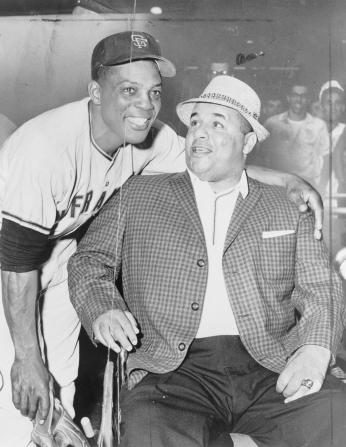
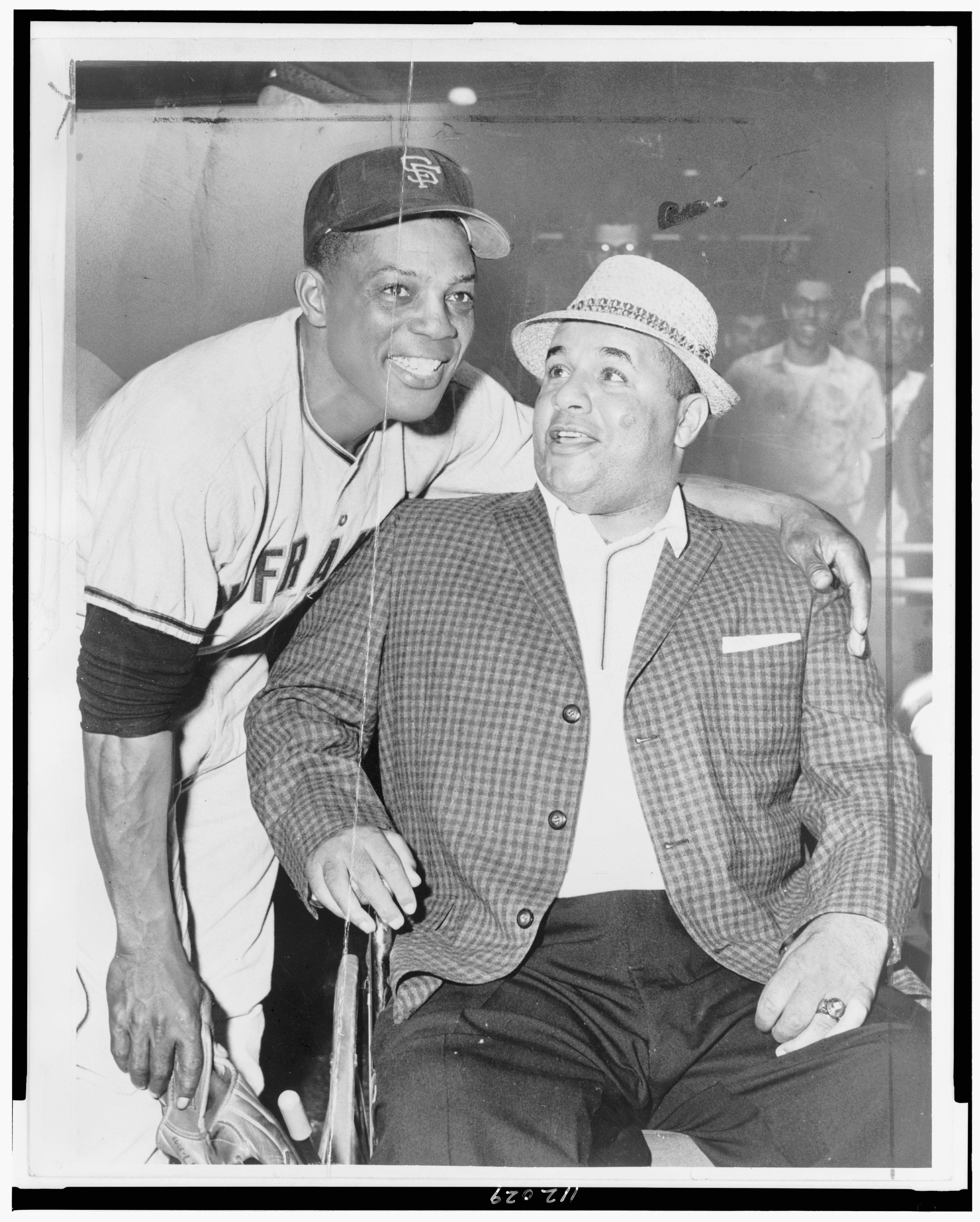
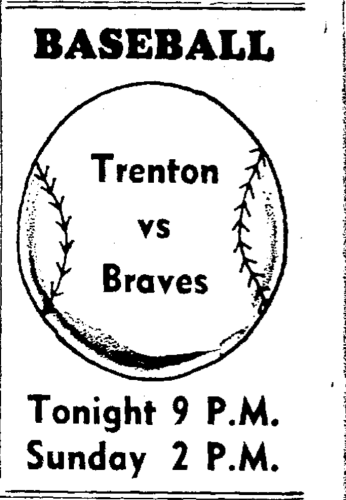

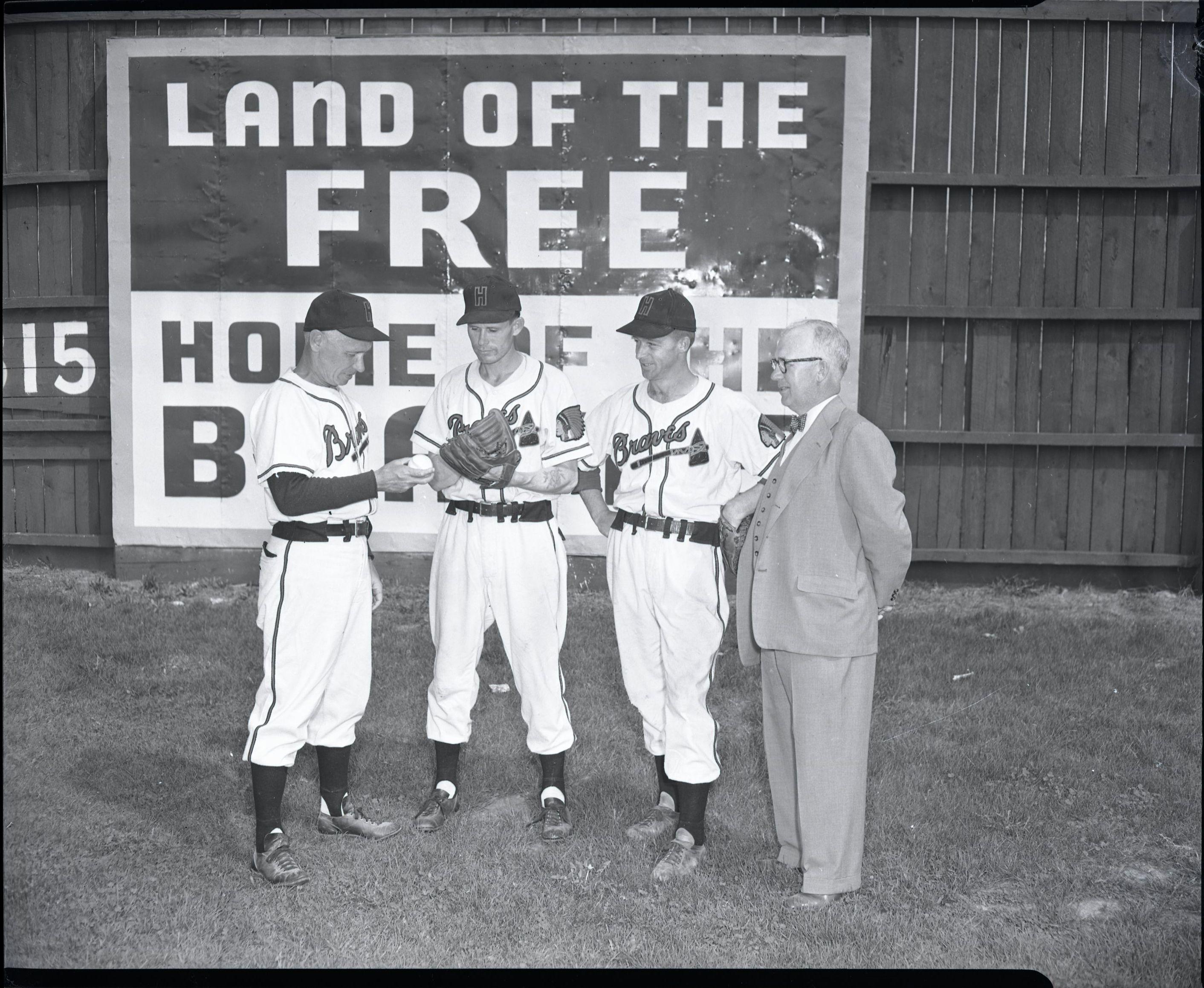
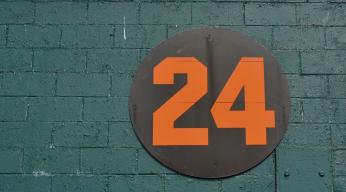


![This integrated classroom at Anacostia High School is the culmination of a seven year struggle against DC's segregated school system. [Source: LOC] Integrated classroom at Anacostia High School](/sites/default/files/styles/crop_320x320/public/AHS%20Class_0.jpg?itok=GNxSJFox)
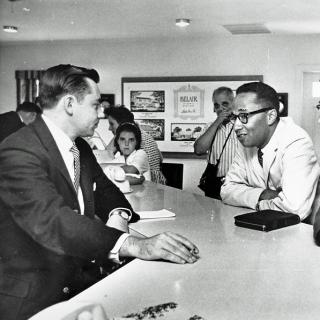
![Sketch of the mythical fuan by Pearson Scott Foresman. [Source: Wikipedia]](/sites/default/files/styles/crop_320x320/public/2023-10/Goatman_Wikipedia_Faun_2_%28PSF%29.png?h=64a074ff&itok=C9Qh-PE1)










